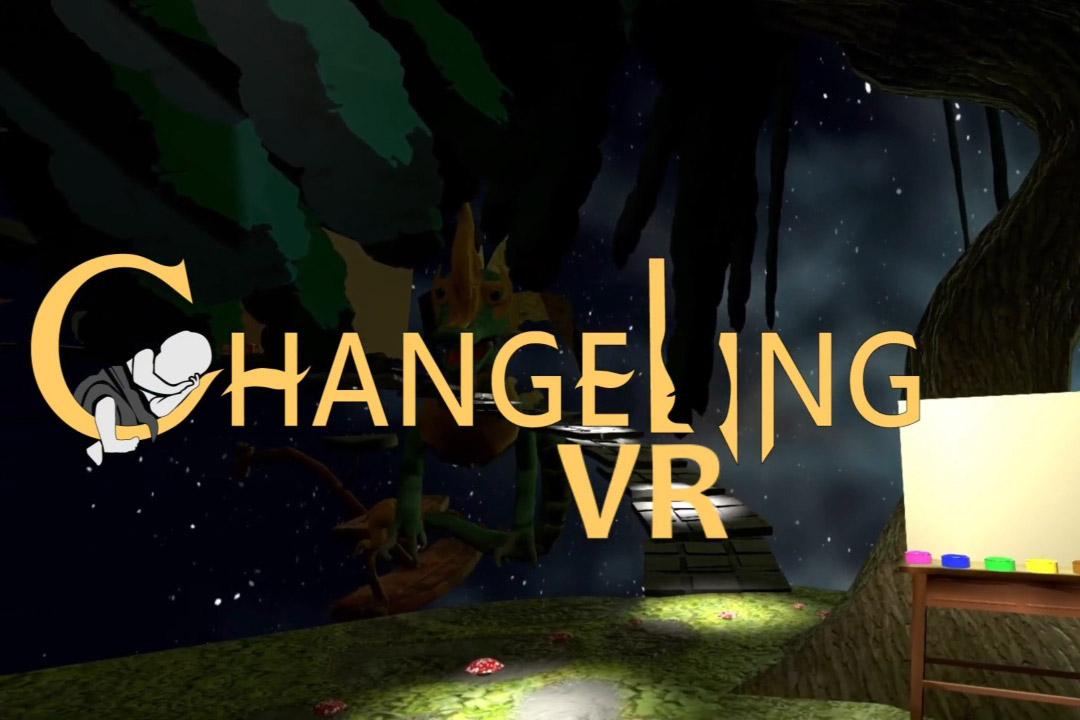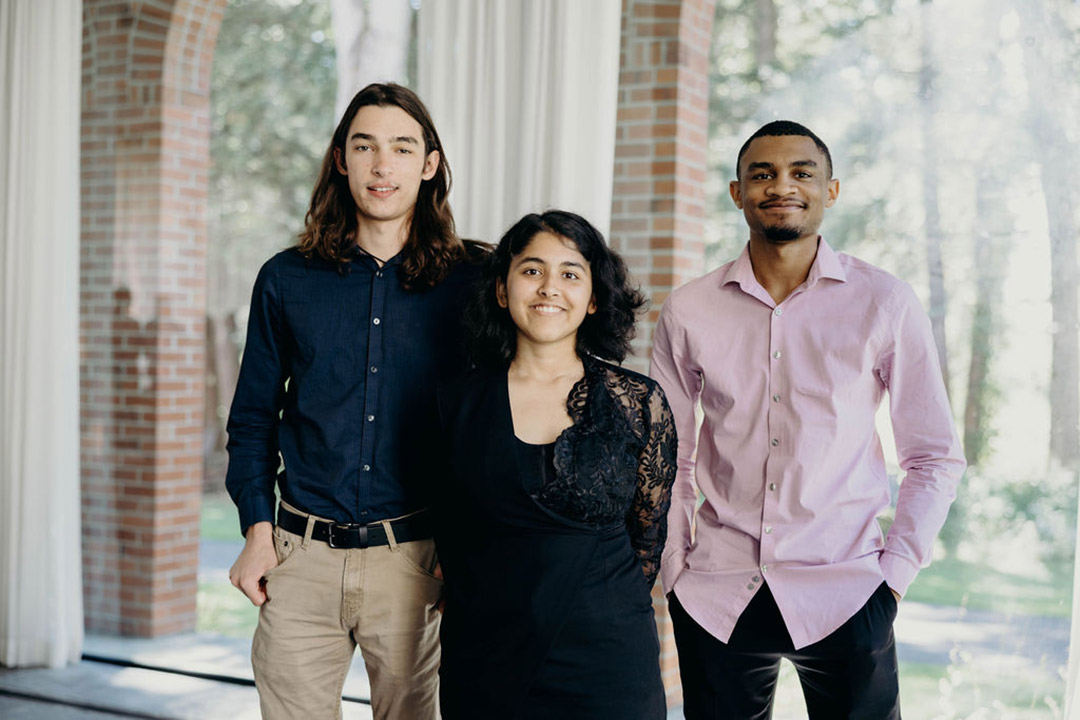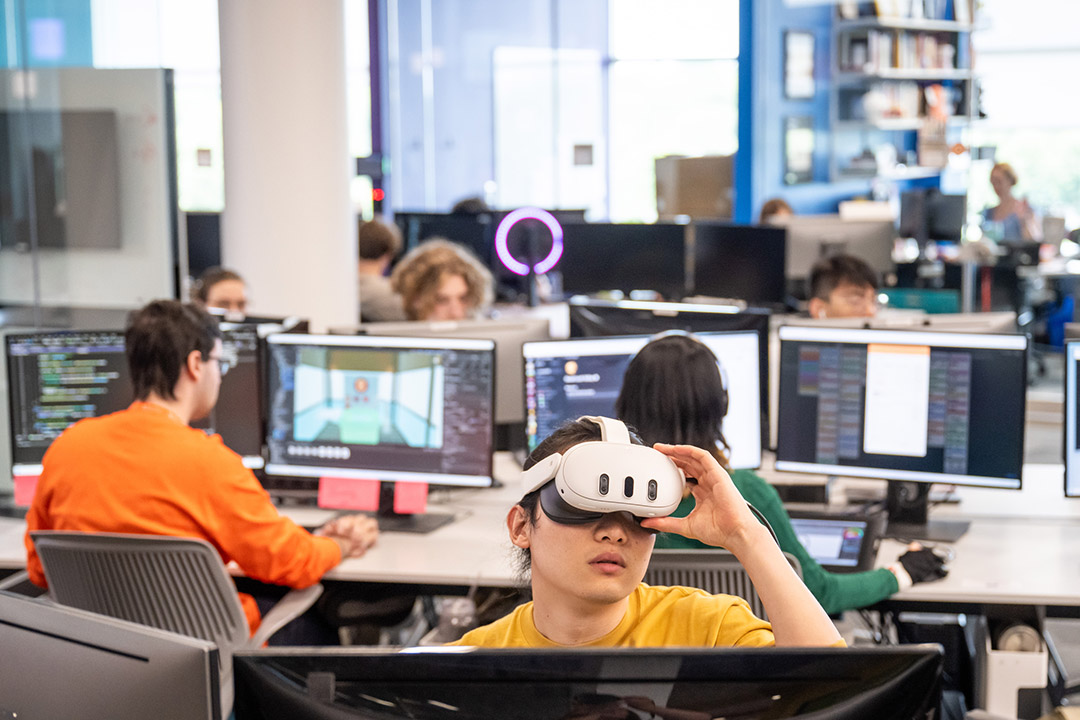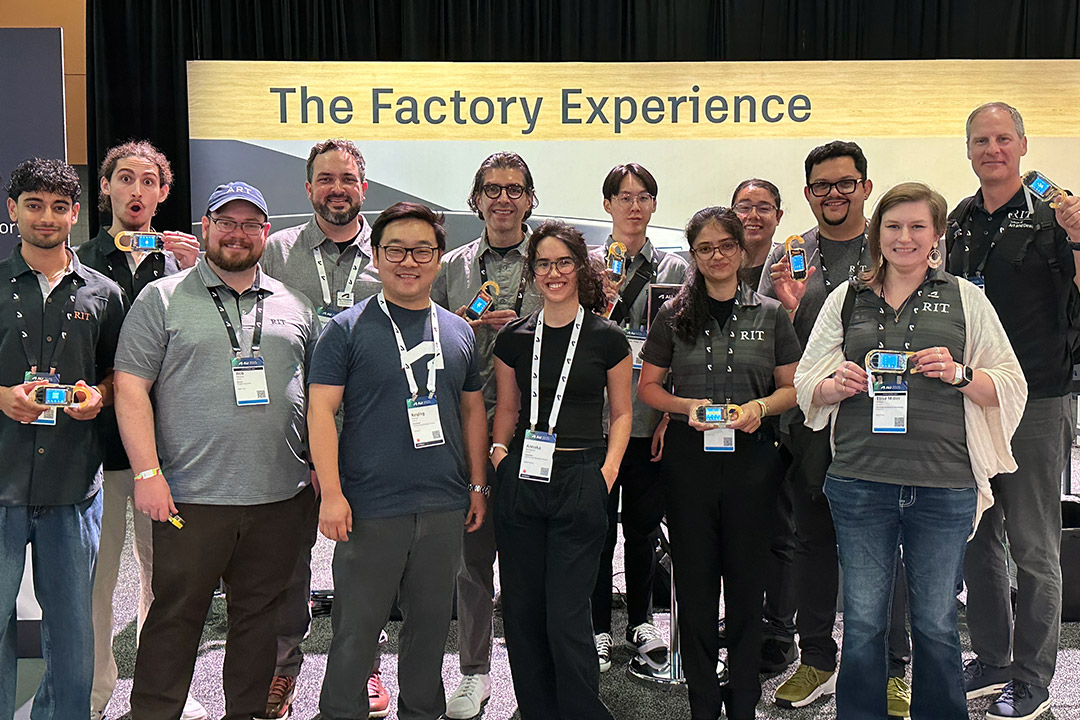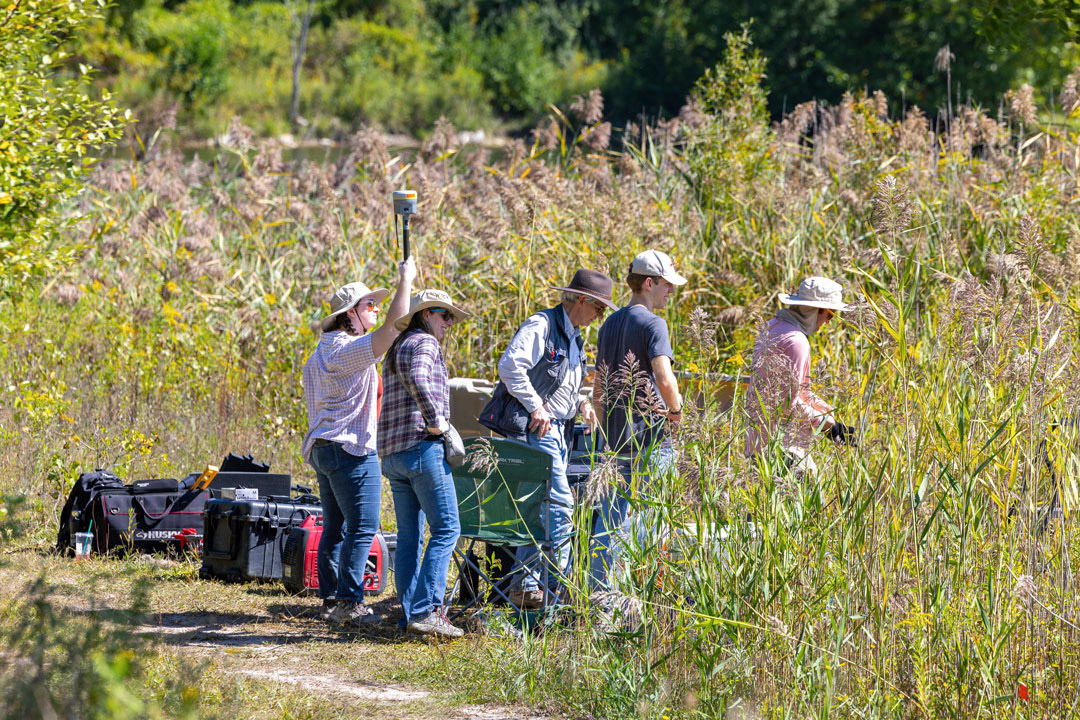More than 300 co-op students work to publish interactive mystery VR game
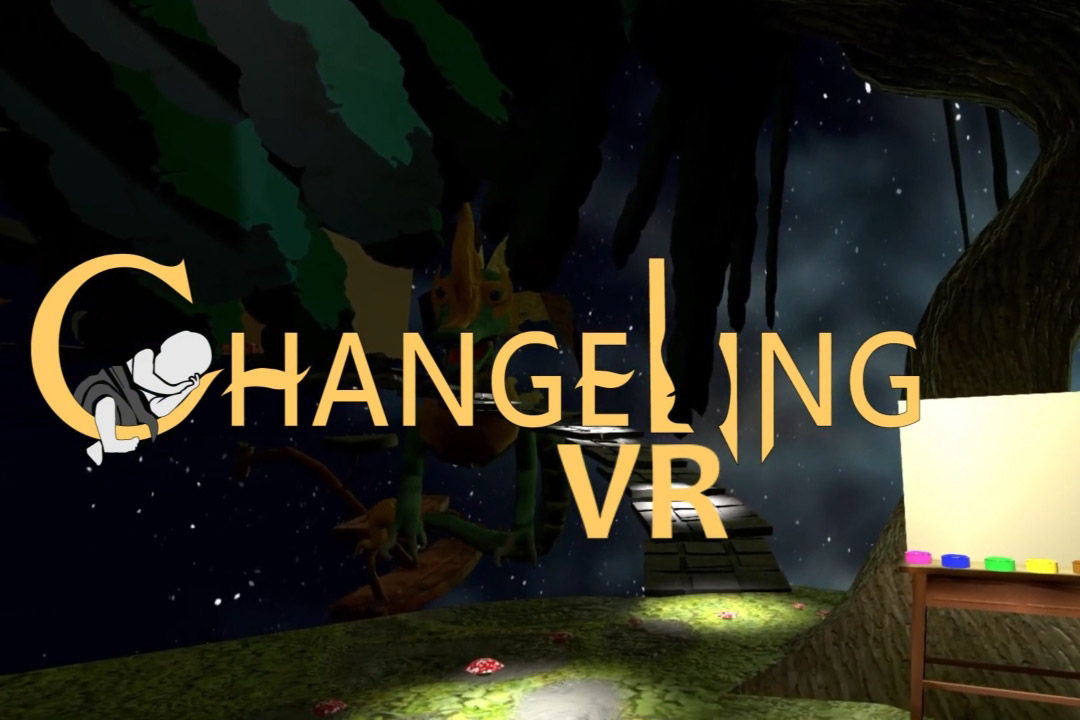
Changeling VR, a new virtual reality game created by the RIT community, is now available to download on Steam Early Access.
More than 300 RIT students have published Changeling VR, a new narrative mystery game on Steam. The virtual reality (VR) game is now available to download for free on the online game platform for early access.
The community-built game is five years in the making. It has included students and faculty from RIT’s Golisano College of Computing and Information Sciences and the College of Art and Design. For many students, working on the game counted as a key co-op credit for their degree program.
In Changeling VR, players take on the role of a detective who can see people’s thoughts and memories. Using these mystical powers and skills of deduction, players must work with a family to discover what is wrong with their baby.
Each member of the family has their own unique level, making it like five VR games in one. For example, the mother’s level is ethereal, like floating through space. With the brother, players slingshot through a level in the style of his sketchbook. The father—an engineer—is faced with a series puzzles.
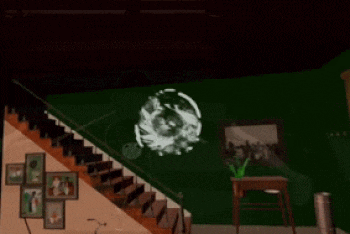
Changeling VR
Elouise Oyzon, associate director of the School of Interactive Games and Media (IGM), came up with the idea for Changeling VR while watching “Murder on the Orient Express.”
“In detective stories, you interview all these people, and they give you their version of truth in flashbacks,” said Oyzon. “The VR genre is perfect for this because it can really give you a point of view. And in this game, we can give each family member’s memory a totally different vibe and aesthetic.”
The project began during the COVID pandemic, when Oyzon noticed that many co-op opportunities in the industry were being put on hold. She had the idea for the VR game and thought it could be a great experiential learning experience in agile development.
“Typically, IGM students on their first co-ops might work in quality assurance or user experience, but they don’t always get to do level design, narrative, or sound composition,” said Oyzon. “At the Changeling studio, they get to do the things they have been doing in class and even take on new roles.”
Students on co-op with the Changeling studio worked full time and had the option to work remotely. Documentation was key for development because new co-op cohorts came in each semester.
For Julian Alvia, a fourth-year game design and development major, the co-op was an opportunity to learn Unreal Engine, as opposed to the Unity game engine he uses in the classroom. As a team lead, he oversaw development and fixed bugs. Later, as a producer, he ran the studio’s daily stand-up meeting and weekly milestone meetings.
“It was a challenge allowing people to be creative, while also meeting deadlines within the scope of what we wanted to do during our cohort,” said Alvia, who is from Waterbury, Conn. “It was rewarding learning how to be a leader and now that’s the direction I want to focus my career.”

Changeling VR
Alvia added, “Having a published game to your name is good to put on résumé and show future employers.”
Kyle James still uses the skills he learned from working on Changeling VR. He graduated from the Combined Accelerated BS/MS in game design and development in 2024 and now works as a project a project manager for the STNDRD Fitness app.
“As a co-op, being able to manage 80 people across disciplines was a huge learning process,” said James.
Right now, the game is in Steam Early Access—a unique development model that allows games to be played as they progress towards a full release. The team plans to continue development for about 18 months.
Four out of the seven eventual levels can now be played. Players speeding through the game can finish it in about 40 minutes, while others looking to explore can take hours. The game is published through RIT’s MAGIC Spell Studios.



